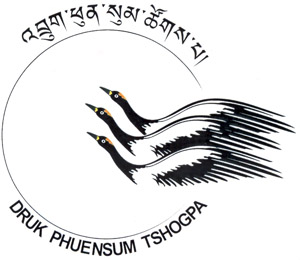DPT and money
Sustainability of political parties was one of the biggest debates in several sessions of the parliament for last four and half years. The question still remains unresolved whether parties can sustain themselves or need support. Until this day, parties are legally allowed to get financial donations only from the members.
The ruling DPT had proposed state funding for two parties represented in the parliament. Opposition party PDP and National Council trashed the proposal. Though there aren’t any clear legal provisions on whether parties should or should not get state funding, different actors have different interpretation of the constitution and the laws. Even the Election Commission of Bhutan (ECB), who has no authority to speak on what resolutions or law parliament makes, opposed the idea of state funding for the political parties. There were none in the field, except DPT who accepted the idea.
PDP was successful in this mission. But what has it achieved through this: nothing. The bitter provision for PDP in this proposal was that state funding for political parties was to be based on number of MPs the parties have in parliament. That would have brought nothing for PDP.
PDP had targeted otherwise. Tshering Tobgay assumed, both parties will fail to clear the debt and will disqualify from contesting. And new parties have to come up to fill the gap. He knew, his party is already dead. And making DPT die will benefit him. On the other hand, state funding would have benefited DPT than PDP.
However, things did not go as per his assumption. DPT not only cleared debt but created some surplus in its account. PDP had to struggle to pay the sum, beyond the deadline given by ECB.
At this time, PDP is busy finding candidates to contest next election DPT is busy wooing party workers.

In a recent gathering of parliamentarians and district coordinators in Thimphu, DPT proposed a good sum of money to pay its workers at the ground level. According to party secretary Thinley Gyamtsho, they are proposing a monthly salary of Nu.5,000 for district coordinators, Nu.4,000 for constituency coordinators, and Nu.3,000 for gewog coordinators and Nu.2,000 for the Chiwog coordinators. Moreover, it needs a great amount of money to run its headquarter in Thimphu as well.
The mathematics of this payment summery gives the following figures:
20 districts @ Nu 5,000 = Nu 100,000
47 constituencies @ Nu 4,000 = Nu 188,000
206 gewogs @ Nu 3,000 = Nu 618,000
1044 chiwogs @ Nu 2,000 = Nu 2,088,000
Total salary per month = Nu 2,994,000
Total for 5 years = Nu 179,640,000
It is question where to a party that failed to pay a debt of Nu 20 million for five years and proposed state funding for parties get this sum. Is it just a ploy to recruit more workers to win the votes in next election or the party actually has that sum. If the party has that sum, where has it come from? Legally, a party is obliged to show the sources of fund. Is DPT showing its sources of fund? Bhutanese citizens including the proposed salary beneficiaries have right to ask DPT where are they getting this money from?
It should either have come from misuse of state treasury or foreign donations. Even if all its MPs agrees to support Nu 500,000 (maximum ceiling fixed by ECB for individual donations to party) the party will have far less money than it is now proposing. There are so many people in Bhutan who give such a big donations. Or has it come from the palace?
It is unlikely that party will continue paying that money to all its district, gewog, constituency and chiwog level workers. That will extend not beyond a few months from election.